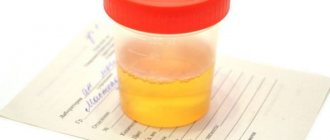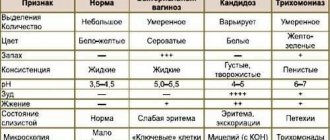What is the thyroid gland?
The thyroid gland is one of the largest glands of the endocrine system. The weight of the thyroid gland in an adult is on average 20-30 grams and depends on the region of residence.
thyroid
located on the anterior surface of the neck and consists of two lobes and an isthmus. The outside of the thyroid gland is covered with a capsule, from which connective tissue septa extend inward, dividing it into lobules. The lobules consist of follicles, the walls of which are lined with epithelial cells.
thyroid
secretes iodinated hormones: thyroxine (T4) and triiodothyronine (T3), as well as the non-iodized hormone thyrocalcitonin. The main components for the formation of iodinated hormones are iodine and the amino acid tyrosine. The regulation of thyroid function is carried out by the central nervous system with the help of TRH and TSH.
How is hypothyroidism and infertility treated in women?
If the cause of hypothyroidism is eliminated, the normal state of the thyroid gland will be restored and the ability to develop a normal pregnancy will appear. For hypothyroidism, replacement therapy is used. The dosage of hormonal drugs is selected individually, depending on:
- severity of gland dysfunction;
- duration of the disease;
- the woman’s weight and age;
- existing heart pathology (drugs cause tachycardia - rapid heartbeat).
The goal of such treatment is to achieve and then maintain standard thyroxine levels. The duration of treatment depends on the duration of the pathology. Reproductive function in both women and men is completely restored over time. But in many cases you have to take replacement therapy throughout your life.
At the same time, ovulation is stimulated with special drugs. This treatment can take a long time and requires a careful approach to all procedures. Schematically, it is as follows: the growth of follicles is stimulated to a certain point, then the hormone hCG (human chorionic gonadotropin) is injected so that the egg can be released from the ovary. HCG is often called the pregnancy hormone: it regulates hormonal processes in the female body during pregnancy.
All these procedures are carried out only if the patency of the tubes is not impaired - there is a danger of developing an ectopic pregnancy.
Autoimmune thyroiditis
AT is a disease in which, as a result of pathological immune reactions, autoantibodies to thyroid factors are produced and the synthesis of thyroid hormones is disrupted. For diagnosis, determination of the level of antibodies to thyroglobulin, microsomal antigen in the blood, determination of the level of thyroid hormones, TSH, and ultrasound of the thyroid gland are used. AT can occur with various forms of thyroid dysfunction. At the initial stages of the disease, as a rule, a euthyroid state is observed; over time, hypothyroidism develops. Therefore, periodic monitoring of hormone levels in the blood is necessary.
Symptoms of hypothyroidism
Quite often, women who come to the gynecologist with complaints about menstrual irregularities and problems with conception are diagnosed with problems with the functioning of the thyroid gland. It is difficult to make such a diagnosis based only on the patient’s complaints, since the symptoms of this endocrine disease are varied and can differ significantly from case to case. Much depends on the duration of the disease and the degree of hormone deficiency, the woman’s age, and other existing diseases. Classic symptoms include swelling of the arms and legs, weight gain, low body temperature, hoarse voice, drowsiness, weakness, forgetfulness, deterioration of hair condition, dry skin, anemia, and depression. On the other hand, in some cases, when hormones deviate from the norm, these symptoms may be completely absent.
Thyroid and pregnancy
Pregnancy causes an exacerbation of autoimmune thyroid diseases; so-called gestational thyrotoxicosis and gestational hypothyroidism can occur, which adversely affect the course of pregnancy. Therefore, if there are any disorders of the thyroid gland
mandatory correction is required before pregnancy.
The thyroid gland plays an important role in the processes of intrauterine development: it participates in the implementation of compensatory and adaptive reactions of the fetus when environmental conditions change, it influences the growth and formation of bone tissue and the fetal central nervous system. Thyroid hormones
mothers stimulate the function of the corpus luteum, which is important for maintaining pregnancy in the early stages.
The formation of the fetal thyroid gland occurs at 4-5 weeks of intrauterine development. By 16-17 weeks, the fetal thyroid gland is already fully formed.
Maternal thyroid hormones penetrate the placenta in very small quantities and therefore the functioning of the thyroid gland
the fetus is relatively autonomous.
The fetus is provided with iodine exclusively by the mother's body, so the amount of iodine consumed plays an important role during pregnancy. With a low intake of iodine in the body, excessive chronic stimulation of the thyroid gland occurs, which can lead to the formation of goiter in the mother and thyroid hyperplasia in the fetus. According to WHO experts, iodine deficiency is the most common cause of neuropsychiatric disorders in children. According to WHO recommendations, the daily dietary requirement for iodine is 200 mcg for pregnant and lactating women. thyroid
dysfunction , the amount of iodine supplied to the body when taking prenatal vitamins ensures the normal needs of the mother and fetus. No additional iodine supplementation is required. If there are thyroid disorders, consultation with an endocrinologist is necessary.
Mechanisms of changes in the reproductive system of women with hypothyroidism
Changes in the process of synthesis, transport and metabolism, including the formation of sex hormones, are closely related to the deficiency of thyroid hormones, which are synthesized by the thyroid gland.
Biologically active substances of the thyroid gland have a stimulating effect on the production of a special protein in liver cells that binds testosterone and estradiol with 5-dehydrotestosterone. With the disease, the level of liver protein decreases, which leads to an increase in the content of testosterone in the active form. Under its influence, ovulation is suppressed and the menstrual cycle is disrupted and, as a rule, infertility occurs. Externally, hormonal changes are manifested by excess hair growth, changes in a woman’s figure and behavior. The functionally altered thyroid gland secretes hormones that disrupt the inactivation of estrogens. That is, the ovaries secrete estrogens in a less active form, which leads to disruption of the normal feedback mechanism in the regulation of the formation of follicle-stimulating hormone.
Gonadotropins are the most important hormones that regulate the cyclic processes of menstruation and ovulation, which means that disturbances in their synthesis affect the processes accompanying infertility. If a woman with hypothyroidism overcomes infertility and manages to become pregnant, then throughout her pregnancy she is at risk for miscarriage, as well as for the occurrence of various pathologies. The threat of miscarriage is especially high in the first trimester, when the thyroid gland of the unborn child is not sufficiently formed and the period of embryogenesis occurs under the influence of the thyroid hormone of the pregnant woman.
If the thyroid gland does not synthesize hormones for a long time, then the level of prolactin (milk hormone) increases in the blood, which promotes milk secretion and also inhibits the processes of ovulation and menstruation. Almost always such women are accompanied by infertility.
What is endemic goiter?
Iodine deficiency or endemic goiter is a compensatory enlargement of the thyroid gland, which develops as a result of iodine deficiency in individuals living in iodine-deficient regions. , thyroid function
is not affected; in more severe forms, hypothyroidism may develop.
The daily requirement for iodine is on average 150 mcg per day. When iodine intake is below 100 mcg per day, a compensatory enlargement of the thyroid gland develops. . In response to a decrease in the level of thyroid hormones in the blood, an increase in TSH secretion is observed, which first causes diffuse hyperplasia of the gland, and then the development of nodular forms of goiter. Do you want to have your thyroid gland examined?
HYPOTHYROIDSIS: TO TREAT OR NOT TO TREAT?
This disease is associated with insufficient production of thyroid hormones. Nina Vladimirovna KUSHNIR, an endocrinologist of the highest category at the Polyclinic Research Institute of Physics and Medicine, Federal Medical and Biological Agency, spoke about how to recognize, diagnose and treat hypothyroidism (and in some cases, prevent its development) .
— Nina Vladimirovna, what is hypothyroidism and how does it manifest itself?
— With this disease, the thyroid gland produces insufficient amounts of thyroid hormones T3 and T4. The degree of risk of developing hypothyroidism is indicated by an increase in the level of the hormone TSH - this is the first “bell”. Since thyroid hormones are necessary for all organs, tissues and cells without exception, hypothyroidism can manifest itself in a variety of disorders, which are often very similar to other diseases.
Women are more prone to hypothyroidism (especially during the postmenopausal period); they are diagnosed with it 8–10 times more often than men. For Moscow this figure is 6–7%.
— What are the most characteristic symptoms of this disease?
— A lack of thyroid hormones leads to fluid retention in the intercellular space and a slowdown in metabolic processes, so unexplained weight gain, constipation, hair loss, swelling of the face, snoring, and deepening of the voice (due to swelling of the vocal cords) may occur. On the part of the central nervous system, these are fatigue, depression, and anxiety. From the genital area – menstrual irregularities, infertility. If any of the listed symptoms are observed, it is necessary to determine the level of the hormone TSH - its increase, as we said, may be a sign of hypothyroidism.
— What should TSH be normal?
— A TSH level of 0.4 to 4.0 mU/l is considered normal. But not everything is so simple here. If the TSH level is slightly higher than normal (i.e., from 4.0 to 10.0 mU/l), this indicator alone cannot make a diagnosis of “hypothyroidism,” and treatment in this case is not always required. First of all, the level of T3 and T4 is determined, and if these indicators are normal, then this may be subclinical hypothyroidism. In some cases, it is enough just to be observed by an endocrinologist. But if TSH is above 10.0, then treatment is necessary. It should be noted that in young women of reproductive age, TSH should be 2.5 mU/l or even lower. If your TSH level is above 4.0 mU/l, be sure to contact an endocrinologist - only he will determine the tactics for further management.
— What causes lead to hypothyroidism?
— A fairly common cause is autoimmune thyroiditis (AIT). This is a rather complex disease. For reasons that are not entirely clear, the autoimmune system malfunctions, as a result of which the production of thyroid hormones gradually decreases. To diagnose AIT, a blood test is taken to look for antibodies in the thyroid gland. Another common cause of hypothyroidism is surgery on the thyroid gland for various diseases (toxic goiter, multinodular and nodular goiter, thyroid tumors). Finally, chronic iodine deficiency can lead to serious changes in both the thyroid gland and other systems.
— Are additional studies prescribed (for example, ultrasound) or are hormonal tests sufficient?
— After a screening study (which is an analysis of the levels of the hormones TSH, T3 and T4), if necessary, an ultrasound is prescribed, which allows us to assess the structural changes and size of the thyroid gland. It is very important to understand what exactly led to the underproduction of hormones; treatment tactics will depend on this. Maybe it’s diffuse goiter (enlargement of the thyroid gland due to iodine deficiency) - then iodine supplements are prescribed, and the TSH level will return to normal. And if it is a nodular goiter, a puncture biopsy of the nodes is required to determine their cellular composition.
— Many people are afraid to perform a puncture.
— Yes, there is a persistent myth that piercing a node with a needle can supposedly provoke the growth or development of a tumor. In fact, it has been proven that if there is no oncology, then puncture does not lead to the growth of cancer cells, but is the most important diagnostic criterion: the earlier it is diagnosed, the easier it is to treat. After all, there are no markers for thyroid cancer.
Normally, the volume of the thyroid gland does not exceed 18 cm3 in women and 25 cm3 in men.
— What is the treatment for hypothyroidism, if necessary?
— Since hypothyroidism is a deficiency in the body of the hormones thyroxine (T4) and triiodothyronine (T3), treatment involves compensating for this deficiency and is called replacement therapy. Properly selected replacement therapy prevents all possible adverse consequences of thyroid hormone deficiency and allows you to lead a lifestyle that is practically no different from normal.
— What about postoperative patients?
— If we are talking about complete removal of the thyroid gland, mainly due to cancer, then hormone replacement therapy is prescribed immediately after the operation. It is important to be observed by an endocrinologist and maintain TSH levels at the lower limit of normal or even slightly lower.
— You mentioned iodine deficiency. Is it necessary to take iodine supplements to eliminate it, or is it enough to adjust the diet?
- Let's go in order. Iodine is truly the most important element in the synthesis of thyroid hormones. It is also true that Russians are in a state of severe iodine deficiency: with a daily requirement of 150 mcg of iodine, we receive no more than 80 mcg of iodine per day. We get up to 95% of iodine from products of plant and animal origin (for example, the iodine content in 1 kg of seaweed reaches 800,000 mcg) and only 3–5% from air and water.
- So you need to eat seaweed every day?
- Not at all necessary. Mass prevention, in accordance with the state program, involves the use of iodized salt. There are also group and individual prevention. Pregnant women are included in a separate group - they all take iodine supplements.
— What is subclinical hypothyroidism, which you talked about earlier?
— Subclinical hypothyroidism is characterized by elevated TSH levels (from 4.0 to 10.0 mU/l) with normal levels of T3 and T4 and without clinical manifestations. Treatment (or correction) is required in a number of cases: for example, in a young woman of reproductive age who is about to become pregnant and give birth (since low levels of thyroid hormones negatively affect the development of the fetus and the woman’s health). Treatment is also necessary for postmenopausal women, if along with increased TSH there is increased cholesterol, excess weight, diabetes, etc. - then there is no need to wait for a further increase in TSH and a decrease in T4. Although the final decision is made by the attending physician.
Subclinical hypothyroidism occurs in 10% of the population. In women of the older age group, its prevalence is 12%.
- But what if there is none of this?
- Then it’s enough just to be observed by an endocrinologist. There are cases of the so-called. transient (short-term) increase in TSH with normal T4 against the background of certain conditions - the postpartum period or subacute thyroiditis. In such cases, a follow-up examination is scheduled after three months.
— And the last question: sometimes the media advise everyone to take thyroid hormone medications after a certain age. Is it necessary and possible to do this without consulting a doctor?
— Tactics in this matter are changing. About 20 years ago in medicine it was believed that thyroid hormones were “hormones of youth”, so they were taken in small doses. And many did this. There was no harm from this, but was there any benefit? After all, if there are violations, then an adequate dosage is needed, taking into account side diseases, such as peptic ulcers, since the drugs are taken on an empty stomach. In my opinion, you cannot take any hormonal therapy without consulting an endocrinologist!
Interviewed by Maria SHCHERBAKOVA
Literature:
1. Vetshev P.S., Melnichenko G.A., Kuznetsov N.S., Chilingaridi K.E., Vanushko V.E. /Diseases of the thyroid gland - Moscow, 1996
2. Melnichenko G.A., Murashko L.E., Klimenchenko N.I., Malyasova S.V. / Thyroid diseases and pregnancy - Russian Medical Journal, 1999
3. Khostalek U./Diseases of the thyroid gland and the possibilities of their effective treatment - collection of lectures - Moscow - 1997.
4. Varlamova T.M., Kerova A.N.,../Autoimmune thyroiditis and pregnancy - Obstetrics and Gynecology, Moscow, 1999, No. 4.
Treatment of infertility caused by hypothyroidism
As a rule, having eliminated the cause of the disease, the thyroid gland restores its full function and the woman is able to become pregnant. For hypothyroidism, replacement therapy is prescribed, in which hormonal drugs, for example, levothyroxine sodium, are selected individually. The goal of replacement therapy is to maintain thyroxine levels within normal limits.
Women with hypothyroidism in the compensated stage, in which the thyroid gland can be restored, deserve special attention. For women who have not become pregnant for a long time, the ovaries are stimulated in parallel with the prescribed thyroid hormones. When pregnancy occurs, the doctor increases the dose of levothyroxine, as the need for thyroid hormones increases. After the birth of a child, the need for hormones decreases, so the dose of the hormonal drug is reduced.
Conclusion
The thyroid gland performs the most important function, taking part in metabolism. Its biologically active substances indirectly affect the secretion of female sex hormones. Thyroid diseases, in particular hypothyroidism, affect a woman’s reproductive health, leading to infertility. Reduced hormone levels are successfully treated with replacement therapy, which uses synthetic hormonal drugs. If a woman manages to become pregnant, she must take a selected dose of thyroid hormones throughout her pregnancy.
Treatment
Regardless of the type of pathology, patients require replacement therapy with levothyroxine sodium, which is a synthetic analogue of TSH. The dosage is selected individually, and the drug is taken once a day, on an empty stomach. At the same time, it is advisable to drink it at the same time, and no less than 4 hours before or 4 hours after taking other medications. The duration of treatment is also individual and depends on both age and health status.
Specific therapy is prescribed for pregnant women or those planning pregnancy in the near future. For subclinical disease, the dosage of the drug is about 1 mcg per kg of body weight. For manifest symptoms, the dosage is slightly higher. What is specific is that such dosages are always prescribed during pregnancy, while outside of pregnancy they must be calculated strictly individually.
source
Diagnostics
The following methods are used to make a diagnosis:
- Blood test for hormones, especially TSH;
- If TSH is high or even at the upper limit of normal, then a blood test is prescribed for T4, free and bound;
- In some cases, a study on T3 is indicated;
- Ultrasound of the thyroid gland.
It is the study of hormone levels that plays a primary role in diagnosing the disease. Hormonal imbalance and the presence of a more or less typical clinical picture are sufficient grounds for making such a diagnosis.











